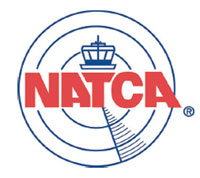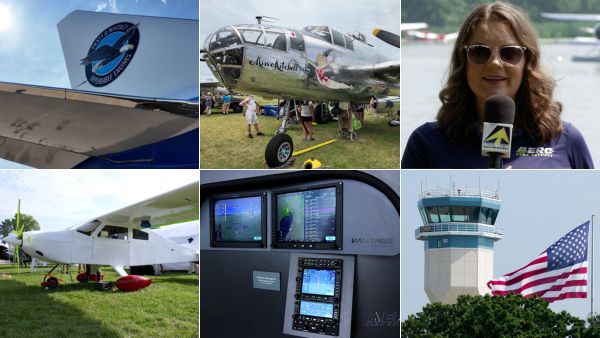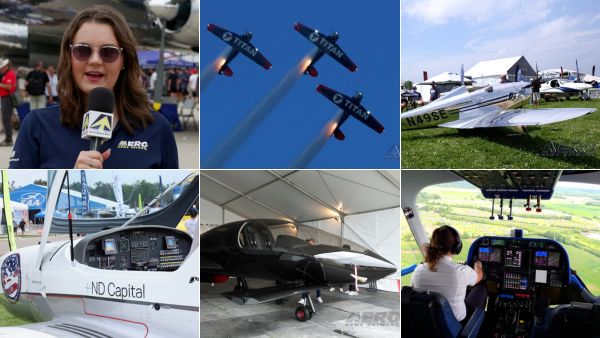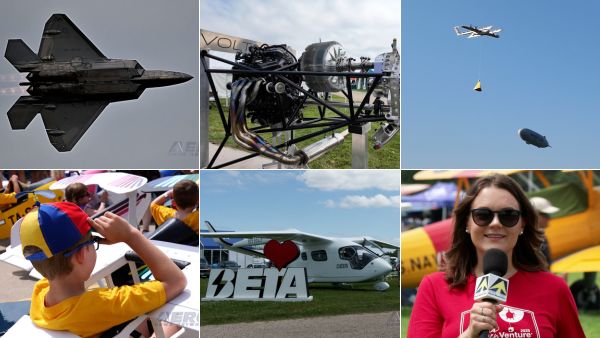Wed, Aug 03, 2011
Controllers Allowed Back Into Cockpits As Part Of Voluntary
Training Program
 The FAA announced that, effective Monday, air
traffic controllers will once again be able to ride in aircraft
cockpits with commercial pilots as part of a voluntary education
program. The Flight Deck Training program is designed to improve
safety by giving air traffic controllers a greater understanding of
the pilots’ experience and workload in the cockpit.
“We’ve worked together to create a credible and secure
flight training program that will enhance safety through increased
education,” said Transportation Secretary Ray LaHood.
The FAA announced that, effective Monday, air
traffic controllers will once again be able to ride in aircraft
cockpits with commercial pilots as part of a voluntary education
program. The Flight Deck Training program is designed to improve
safety by giving air traffic controllers a greater understanding of
the pilots’ experience and workload in the cockpit.
“We’ve worked together to create a credible and secure
flight training program that will enhance safety through increased
education,” said Transportation Secretary Ray LaHood.
“This program gives our new generation of air traffic
controllers a chance to see and hear what the pilot is experiencing
so they know exactly what is happening on the other end of the
microphone,” said FAA Administrator Randy Babbitt. “As
a pilot, I think this important training will give controllers a
richer picture of the airspace system.”
The Flight Deck Training program replaces a previous program
called Familiarization Training, or FAM trip, which was suspended
in 2001. The FAA worked closely with the Transportation Security
Administration and the National Air Traffic Controllers Association
(NATCA) to develop the new program. Because it is designed to
enhance the controller’s understanding of the air traffic
system and specifically how air traffic specialists interact with
the flight deck crew, controllers will always be on duty during
training and cannot take the training in conjunction with any
leave. Controllers will be limited to two training trips in a
calendar year instead of the eight that were permitted under a FAM
trip, and controllers will not be allowed to fly to the same
airport on consecutive flights. A controller must have advance
approval to participate and must also submit an itinerary, as well
as medical and security information. Foreign travel is not
permitted.
 Once approved, the controller must present
unique identification to access the cockpit. During the flight, the
controller must complete pre-approved training objectives as he or
she observes the flight crew. Examples include aircraft preparation
procedures prior to the flight, taxi instructions and procedures,
departure delays and ground stops, types of approaches, enroute
weather and flow constraints.
Once approved, the controller must present
unique identification to access the cockpit. During the flight, the
controller must complete pre-approved training objectives as he or
she observes the flight crew. Examples include aircraft preparation
procedures prior to the flight, taxi instructions and procedures,
departure delays and ground stops, types of approaches, enroute
weather and flow constraints.
Flight Deck Training is being introduced as a pilot program that
the FAA will evaluate and monitor over the next six months.
More News
Check out Blackshape in Oshkosh Display #190 Situated in the Apulian Aerospace district in Monopoli, Italy, Blackshape embodies the epitome of Italian craftsmanship, style, and qua>[...]
A Powerhouse In Aviation Safety Technology, Visit Alpha Systems AOA at Osh Display#3124-3125 Alpha systems AOA has been developing and integrating Angle of Attack systems for the l>[...]
Pilot Noticed That The No. 2 Engine Torque Indicator Was “Maxed Out” And The No. 1 Torque Indicator Was About 60% Analysis: The pilot in command (PIC) reported that the>[...]
Decision Altitude (DA) A specified altitude (mean sea level (MSL)) on an instrument approach procedure (ILS, GLS, vertically guided RNAV) at which the pilot must decide whether to >[...]
Aero Linx: HeliOffshore HeliOffshore is the global, safety-focused association for the offshore helicopter industry. Our mission is to lead a collective safety conversation, identi>[...]
 ANN Thanks Our Speedy Sponsor... Blackshape!!!
ANN Thanks Our Speedy Sponsor... Blackshape!!! Alpha Systems AOA Guides ANN Oshkosh Coverage
Alpha Systems AOA Guides ANN Oshkosh Coverage NTSB Final Report: Boeing CH-46E
NTSB Final Report: Boeing CH-46E ANN's Daily Aero-Term (07.24.25): Decision Altitude (DA)
ANN's Daily Aero-Term (07.24.25): Decision Altitude (DA) ANN's Daily Aero-Linx (07.24.25)
ANN's Daily Aero-Linx (07.24.25)




